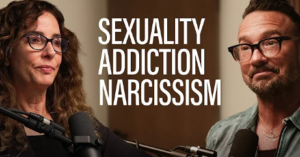Sex therapy for women can help resolve a variety of issues specific to females. Causes of sexual dysfunctions can be psychological, physical or related to personal relationships or cultural influences. The most common issues that women seek sex therapy for tend to fall under three categories:
- desire disorders
- arousal and orgasm disorders
- sexual pain disorders
Many women can benefit from sex therapy. Women often suffer from both life-long sexual problems as well as acquired problems that develop after a period of normal sexual function. Women may also suffer from situational issues that come about due to specific circumstances or because of certain partners.
Desire, orgasm and pain disorders can have both physical and mental causes. A professional sex therapist will always recommend that you meet with a qualified physician or obstetrician/gynecologist to rule out any physical or medical causes of any disorder.
Often times, a woman who is seeking sex therapy for a sexual disorder may have already sought treatment from multiple doctors, but with little success. Some women may find it difficult to mention their sexual disorder to a professional due to the shame and emotional pain surrounding the disorder.
The most common sex therapy issues for women include:
Sexual Desire Disorders
Low sexual desire, lack of interest in sex, low sex drive, decreased libido, or uneven desire for sex between partners are all sexual desire issues. Physical causes may include less than normal production of certain hormones, aging, fatigue, pregnancy, and medication side-effects. Some psychological factors which can lead to decreased libido or low sexual desires include depression, anxiety, and the stresses of everyday life. Negative messages around femininity, intimacy, and sexuality can also have negative effects on a woman’s libido. Sex therapy for women can begin to explore the causes of sexual avoidance or disinterest in sex. Learning about your sexual issues can help you achieve your full sexual potential.
Sexual Arousal and Orgasm Disorders
Persistent Genital Arousal Disorder, Female Orgasmic Disorder, and Anorgasmia are examples of arousal or orgasm issues. Arousal and orgasm problems can be helped through sex therapy with a qualified professional. Lubrication issues for females also are related to arousal and orgasm disorders. Female Orgasmic Disorder encompasses problems with orgasm, difficulty with orgasm, and inability to orgasm (Anorgasmia).
Primary Anorgasmia is when a person has never been able to have an orgasm. Secondary Anorgasmia occurs when a person was previously able to achieve an orgasm but now cannot. It is possible that Secondary Anorgasmia may only present itself in specific situations (i.e. you used to be orgasmic with your partner but now you are not). Sex therapy can help you mend relationship issues which often lead to sexual problems. Learning to relax and decrease anxiety also helps for Secondary Anorgasmia.
Sexual Pain Disorders
Sexual pain disorders can include:
- Dyspareunia – a general term for painful intercourse
- Vaginismus – an involuntary spasm of the muscles of the vaginal wall
- Vulvodynia – chronic pain around the opening of the vagina
Some Medical conditions which can lead to painful sex include:
- Endometriosis
- Polycystic ovarian syndrome (PCOS)
- Hormone or thyroid problems
Some physical causes for sexual pain can include lack of lubrication or the development of cysts in the pelvis, ovaries, or uterus.
Insufficient lubrication can be caused by a variety of reasons including:
- lack of excitement or stimulation
- hormonal changes
- some contraceptives
- fear and anxiety about sex
Tightening or spasms of the vaginal wall may be due to physical or psychological trauma. Often, sexual pain disorders can begin as a physical issue but can then become psychological as well. Sex therapy is an appropriate form of treatment when the problem has progressed to the psychological state.
Medical conditions and sexual pain disorders can have damaging effects on a woman’s self esteem and sexuality if left untreated. Questions about sexual identity and orientation, or recovery from a sexual assault are other topics a sex therapist is qualified to help you with.
Sexual Identity and Orientation
Having questions around sexual identity and sexual orientation can be confusing, anxiety provoking, and intimidating at first. By addressing these complicated and often misunderstood aspects of sexuality, deep healing can take place. Sex therapists are trained in many aspects of sexuality, gender, and sexual orientation including LGBTQ, Kink, Poly and BDSM. Because these legitimate sexual preferences are, at best, inadequately addressed in sex ed and, at worst, socially stigmatized, it is important to work with a therapist who is non-judgmental, accepting and knowledgeable on issues specific to these populations.
History of Sexual Trauma/Sexual Abuse
According to the US Department of Justice, one in six women will be the victim of a sexual assault. Experiencing a sexual assault can turn your world upside down and have severe consequences for your sexuality and your ability to enjoy sex. Working with a sex therapist can help to process the feelings of anger, grief, shame, and pain. Unresolved negative emotions may be preventing you from having a fulfilling and rewarding sex life.
If you are a woman seeking sex therapy in Los Angeles, the sex therapists at Center for Healthy Sex can help you to reconnect with your body, regain your self confidence, and reignite your sexuality.




